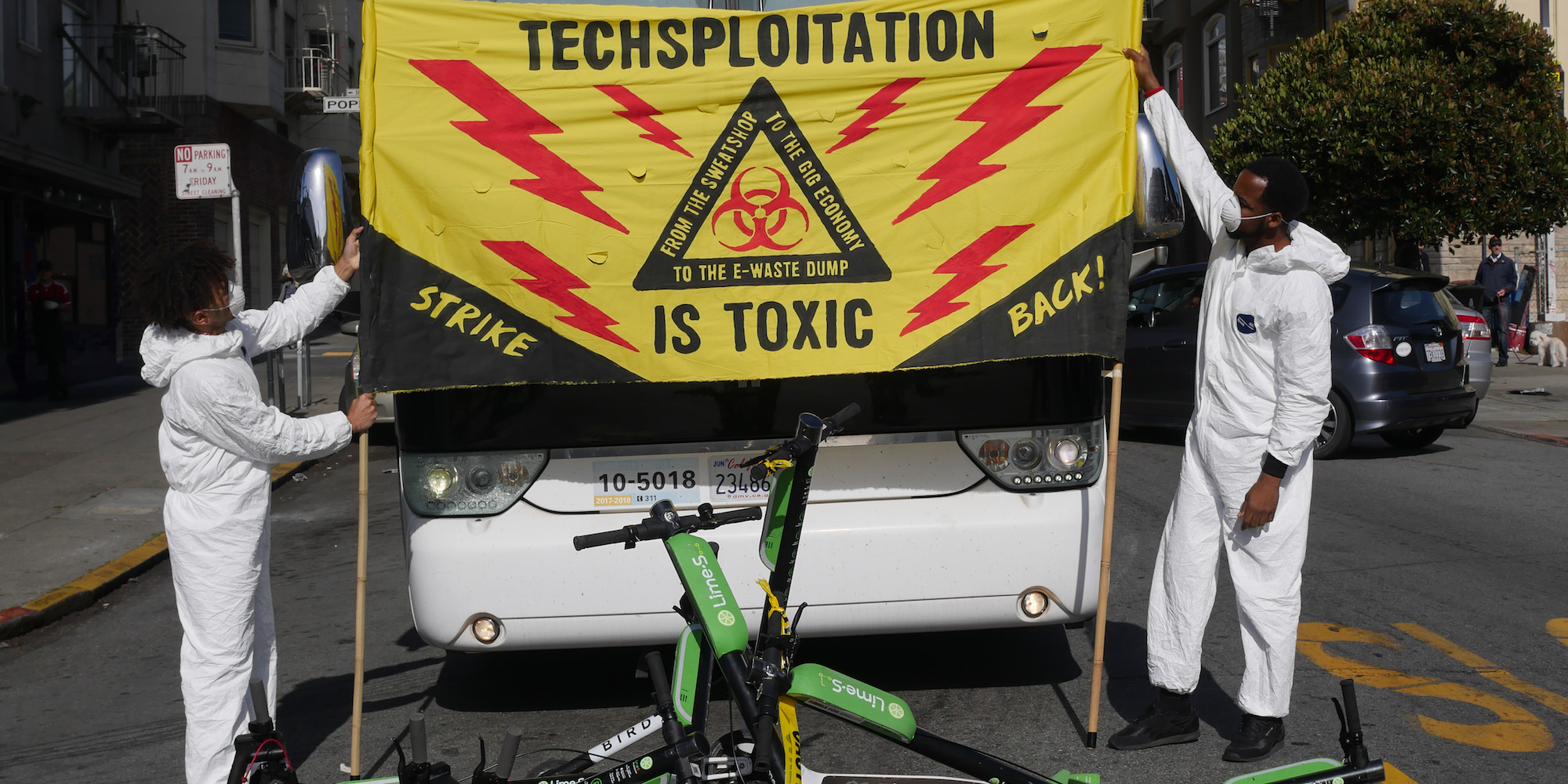- Anti-tech demonstrators in San Francisco blocked tech buses with piles of electric scooters.
- They told Business Insider they were protesting tech companies’ using city streets to experiment and city officials’ increasing use of sweeps to force homeless people off the streets.
- In total, a full intersection, 11 buses, and several cars were blocked for about two hours.
Anti-tech demonstrators in San Francisco on Thursday used piles of electric scooters to block shuttles ferrying Google and other tech company employees to work. The blockade was to protest what they see as the failure of the tech industry and lawmakers to address the city’s income inequality and sizable homeless population.
“What you’re seeing here is that scooters have more rights than people,” Chirag Bhakta told Business Insider. “Our priorities shouldn’t be people first, scooters second. We’re tired of being seen as an experimental playground for the tech industry.”
The deluge of dockless electric scooters that have cropped up in San Francisco and other cities in recent months have drawn criticism from officials who say they were given little to no warning about their presence, as well as from activists who say the scooters are a prime example of tech companies entering public spaces without getting input from residents or permission from regulators.
Business Insider was on the scene. Here’s what the scooter protest looked like:
At about 8:45 a.m., protesters carried scooters to an intersection in San Francisco's Mission District with the intention of blocking shuttles carrying Google employees.

Activists piled scooters in front of buses and unfurled signs that said "Techsploitation is toxic."
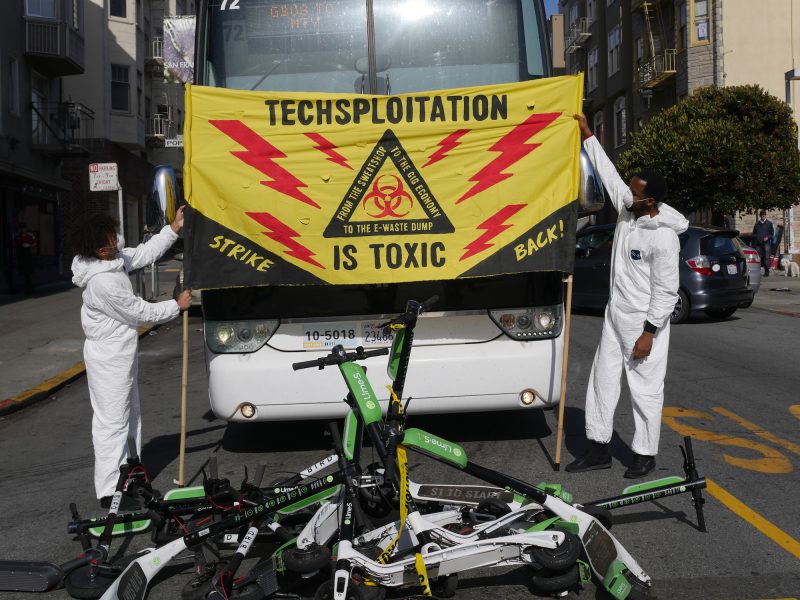
San Francisco's controversial scooter invasion has been spearheaded by three venture-backed companies, Bird, LimeBike, and Spin. These services llow people to reserve a nearby scooter via a smartphone app, ride around on it for a small fee, and at the end of the journey leave it anywhere to be claimed by the next rider.
To make their point that big tech is toxic, protesters dressed in white hazmat suits and masks.

The protest blocked an entire intersection.

Both the piles of scooters and the protest in the middle of the intersection stalled traffic for about two hours.
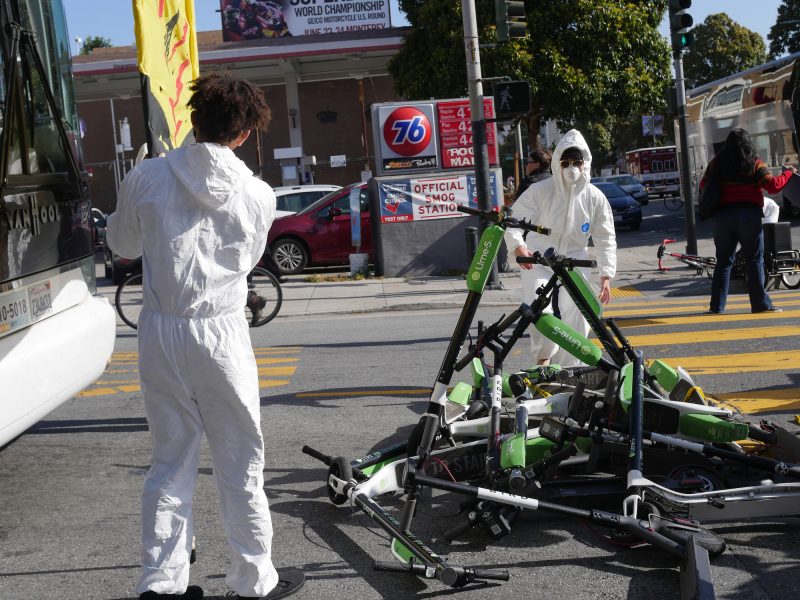
While Google doesn't have any scooters in San Francisco, demonstrators told Business Insider they were also protesting both Google's plans to expand in San Jose and the broader tech industry that they say is partly responsible to the housing crisis the city is facing.

Kelley Cutler, a human-rights organizer at the Coalition of Homelessness, told Business Insider that sweeps, in which authorities force homeless people off the streets, should be a priority for lawmakers — not scooters.
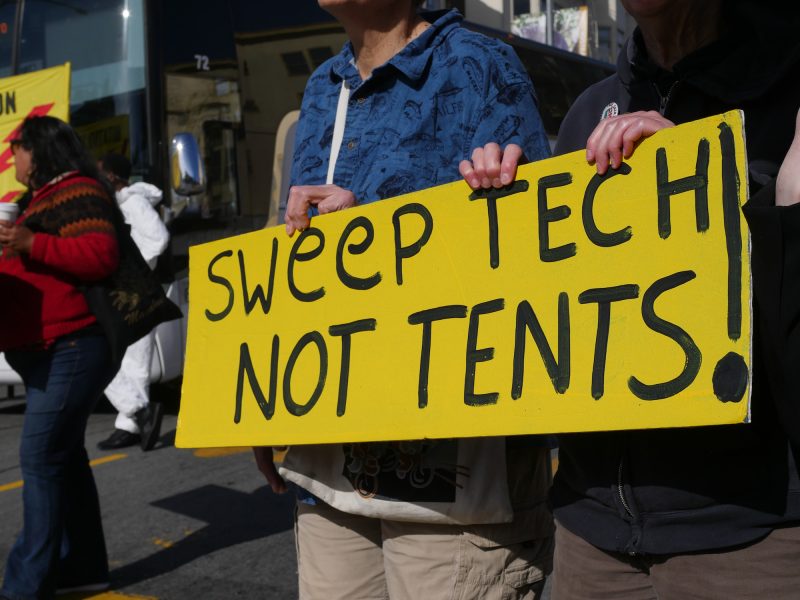
Within weeks of the arrival of the scooters in San Francisco, the city swiftly voted to regulate them. Under the new rules, only five companies with 500 scooters each will be allowed to operate in the city, and they must show they are making an effort to educate people on how to ride them.
But to activists, the quick action from lawmakers reflects the misplaced priorities of city officials.
The protesters see San Francisco's pilot program to regulate scooters as hypocritical. The city, they said, is rewarding bad behavior from scooter companies that entered the market without permission while punishing homeless people with sweeps.

They say the fact that a solution for scooters on sidewalks was so quickly implemented - and that they will be allowed on sidewalks - is a slap in the face to the city's homeless people who are being subjected to inhumane sweeps forcing them off the streets.
Just after the protest started, a man got out of one of the buses and started to remove scooters to clear the street. "It's not fair," he said. "You're punishing the wrong people."

He was confronted by protesters who quickly moved each scooter he pulled away back into the pile.

Police officers eventually told the man to stay inside the bus while the protest continued.
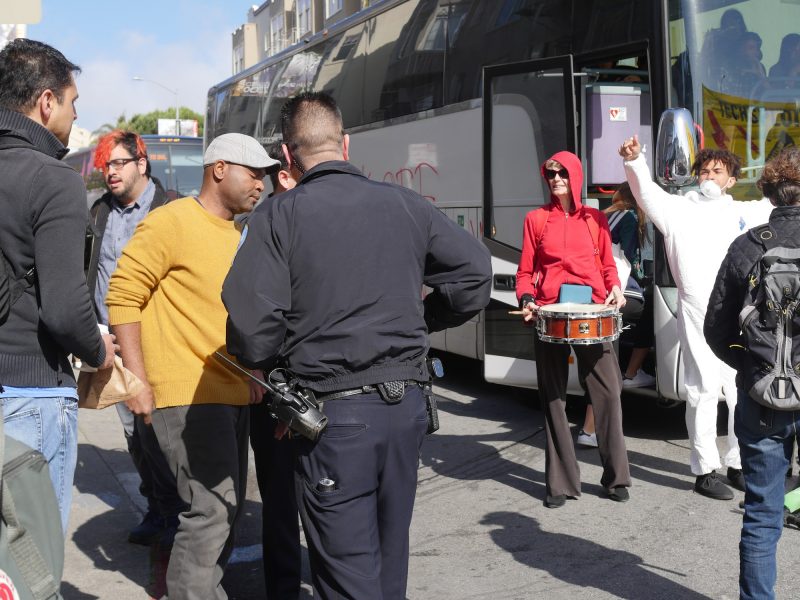
Employees stayed in the buses, which have WiFi, and captured the moment on their phones.
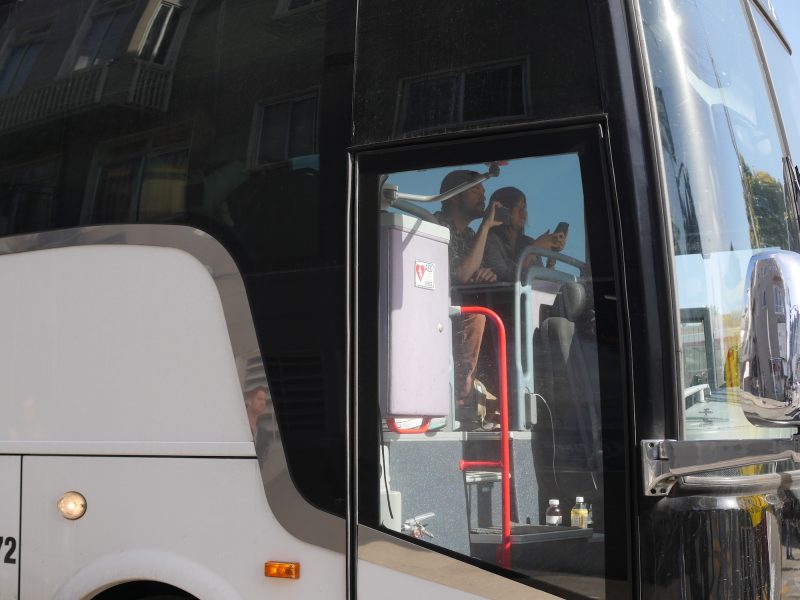
Someone spray-painted some choice words on one of the buses as employees sat inside.
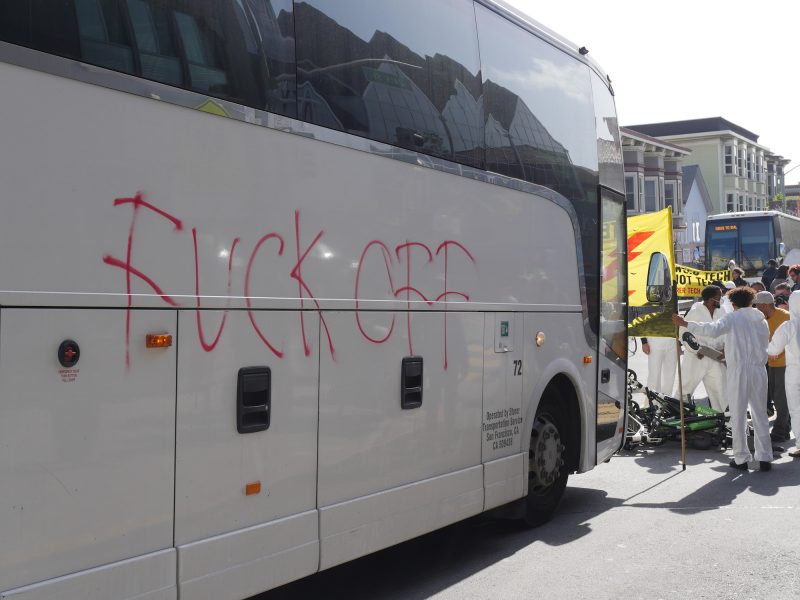
In total, 11 buses and several cars were stalled at the intersection. Bhakta said the protest wasn't meant as a personal attack on the employees going to work, but an outcry from residents who no longer can afford to live in the city.
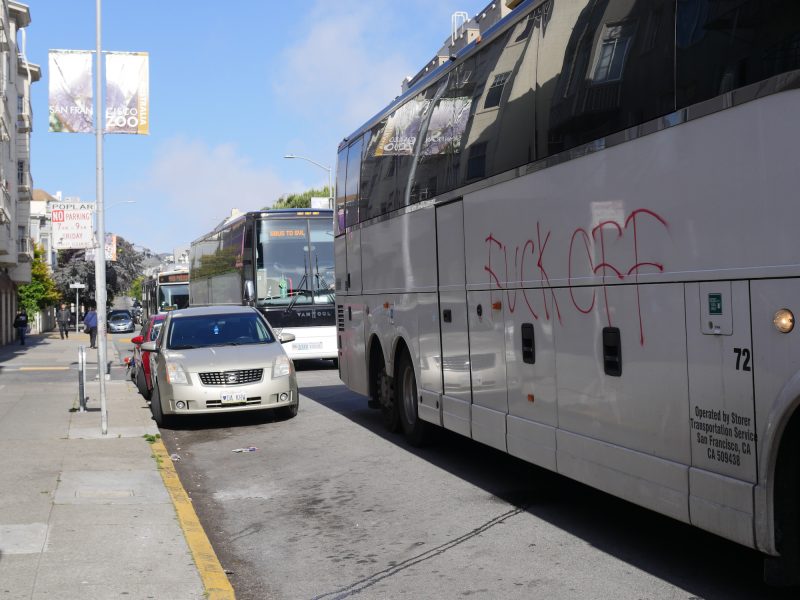
"I just want people to understand why their workday is being disrupted and why we're here," Bhakta said. "We understand that it's an inconvenience, but it's not a personal attack. An inconvenience for you is an outcry from the people. I just want them to show some solidarity and empathy."
